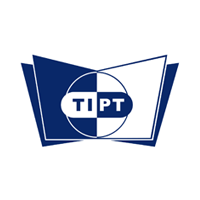
A huge proportion of a pharmaceutical professional’s time can be spent observing and measuring the nature and composition of specific substances. Today’s modern laboratories make use of a wide range of instruments in order to achieve greater insights into the products being developed and tested.
In their advanced module projects, quality assurance students at Toronto Institute of Pharmaceutical Technology (TIPT) can expect to make use of a wide variety of instrumentation types, including those utilized in spectroscopy, Gas Chromatography (GC) and High Performance Liquid Chromatography (HPLC). Read on to learn more about these processes.
Learning About Spectroscopy During Pharmaceutical Training Can be Very Beneficial
Spectroscopy is the study of how matter interacts with electromagnetic radiation. Spectroscopy arguably began with Sir Isaac Newton, who used the term to describe an early experiment in which he directed white light through a simple glass prism to discover the spectrum of colours it was composed of.
The technique has advanced from these early beginnings to encompass the use of electro-magnetic radiation to interact with matter and produce spectra, which are then examined by researchers to unearth key information regarding the nature of that matter.
Spectroscopy plays a considerable role across engineering and science, including pharmaceutical development. Students in pharmaceutical training can use spectrometers to analyse the precise chemical and molecular nature of compounds, with insights down to the atomic level now possible with this technology. As physical tools in the pharmaceutical sector, spectrometers can vary hugely in size, from small desktop devices to massive room-filling machines.
Gas Chromatography is an Excellent Way to Verify Drug Purity
Chromatography refers to the practice of separating the contents of a substance in order to better understand its nature. The use of gas in this process was advanced by English Nobel Prize winner Archer Martin, who made significant advances in analyzing compounds via vaporization in the 1940s. Gas chromatography involves the combination of a gas (usually an inert or non-reactive gas such as helium or nitrogen) with a vaporized substance or compound in a specialized test column. The process works by triggering elution and illustrating different retention times of compounds within the test column, providing key insights.
Modern gas chromatography can provide excellent and rapid readings on the purity and chemical nature of a particular compound. For graduates of quality assurance courses, it can provide a quick and easy way to grasp the chemical make-up of a particular pharmaceutical product. Gas chromatographers have evolved from complex and elaborate set-ups dating from the mid 20th century to compact, automated table-top units that resemble modern office printers.
Quality Assurance Courses Graduates Can Make Use of HPLC Systems
High Performance Liquid Chromatography (HPLC) is a highly-regarded modern analytical method that utilizes the individual polarity of compounds to separate them within a solution. A sample is typically injected into the “mobile stage” of the process (typically a combination of water plus a solvent), before being mechanically pumped through a concentration gradient. The percentage of water is gradually decreased, and observers can make detailed inferences as to the nature of the compounds that subsequently react with the stationary phase of the test column, according to their polarity.

HPLC has become one of the more favoured techniques in modern pharmaceutical sciences. It is commonly utilized within the sector to ascertain the presence or absence of a particular known compound within a sample. In many cases, this compound may then be isolated for use or research, a process known as preparatory HPLC. HPLC has uses across a huge number of areas of research, and is even seeing application in the burgeoning legal cannabis sector in Canada. Like gas chromatographers, HPLC systems are large machines that are about the size of office printers.
Do you want to become a well-informed and technically proficient pharmaceutical professional?
Contact TIPT today to learn why a quality assurance diploma is an excellent avenue to realizing that goal.
